
Episode 1·Nov 25, 2024
Robert Frost and the Meaning of Mitzvah
Robert Frost's poem unveils the essence of mitzvah, intertwining poetic insight with Jewish tradition in a profound exploration of choice and duty.
Podcast · 292 Episodes
Join Rabbi Meir Soloveichik for a year-long journey through all 613 commandments of Judaism.


Episode 1·Nov 25, 2024
Robert Frost's poem unveils the essence of mitzvah, intertwining poetic insight with Jewish tradition in a profound exploration of choice and duty.

Episode 2·Nov 26, 2024
Argentina's president's words exemplify the first mitzvah, belief in God, as explored by Rabbi Soloveichik, sponsored by Neil Rosenberg.

Episode 3·Nov 27, 2024
Explore how Rembrandt's portrait of Margaretha de Geer reveals the power of art to deepen our appreciation of humanity beyond idolatry.

Episode 4·Nov 28, 2024
Explore how two poetic works illuminate the commandments to love and revere God, featuring insights from Emma Lazarus and Rabbi Soloveichik.

Episode 5·Nov 29, 2024
General Patton's prayer highlights the Jewish understanding of petitioning God, explored through Rabbi Soloveichik's insightful analysis.
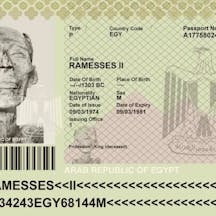
Episode 6·Dec 1, 2024
Rameses's mummy highlights the duty to remember the Exodus, exploring history's impact on faith and identity through ancient and modern lenses.

Episode 7·Dec 2, 2024
Explore how tefillin embodies Jewish faith through dual expressions, enriched by insights from Rabbi Soloveichik and stories of Eliyahu Herman.
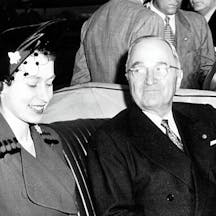
Episode 8·Dec 3, 2024
A condolence letter from Truman to Queen Elizabeth II reveals insights into walking in God's way, as explored by Rabbi Soloveichik.

Episode 9·Dec 4, 2024
Rabbi Soloveichik explores how Torah study and educating the next generation are intertwined, highlighting their importance in Jewish life.

Episode 10·Dec 5, 2024
Laws beyond human understanding highlight God's infinite wisdom, as explored in Rabbi Soloveichik's insightful, sponsored series.

Episode 11·Dec 6, 2024
Discover why Jews sanctify doorways with Scripture scrolls, exploring the deep spiritual significance and tradition behind this ancient practice.
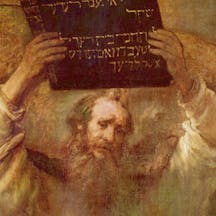
Episode 12·Dec 8, 2024
Explore how a single painting uniquely embodies the Jewish commandment to honor parents, revealing profound cultural and spiritual insights.

Episode 13·Dec 9, 2024
Understanding the Torah as poetry reveals new insights into the commandment to write a Torah scroll, enriching its spiritual and cultural significance.

Episode 14·Dec 10, 2024
A Jewish king must write and carry a Torah scroll to embody divine wisdom and guidance, reflecting a deep commitment to spiritual leadership.
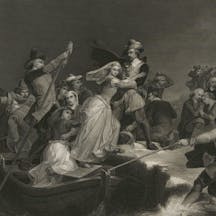
Episode 15·Dec 11, 2024
A Massachusetts tradition highlights the duty to thank God post-meal, inspired by Hezekiah Butterworth's poem, "Five Kernels of Corn."
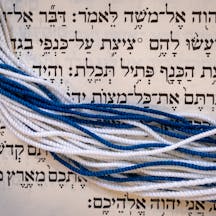
Episode 16·Dec 12, 2024
The mitzvah of tzitzit with blue strings serves as a constant reminder of God's omnipresence, enriching spiritual awareness in daily life.

Episode 17·Dec 13, 2024
Explore why a Jewish king is commanded to read the Torah publicly, revealing the significance of this mitzvah in fostering communal and spiritual unity.

Episode 18·Dec 15, 2024
Explore how three obscure Temple laws distinguish between power's tools and eternity's sources, with insights from Rabbi Soloveichik.

Episode 19·Dec 16, 2024
A Talmudic tale reveals how honoring the Sabbath transforms a meal into a unique experience, highlighting the power of tradition and memory.
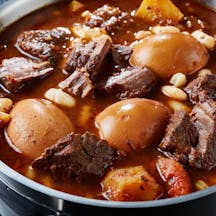
Episode 20·Dec 17, 2024
A cherished Jewish dish and its commandment illuminate the unique essence of Shabbat, setting it apart from all other days.

Episode 21·Dec 18, 2024
A mitzvah about the moon reveals insights into self-discovery, exploring how ancient wisdom guides personal growth and understanding.
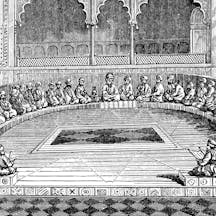
Episode 22·Dec 19, 2024
The Jewish calendar preserves the memory of the Exodus, the land of Israel, and the enduring connection to past generations.

Episode 23·Dec 20, 2024
Menachem Begin's first daughter's birth illustrates the profound meaning of "be fruitful and multiply" in personal and cultural contexts.
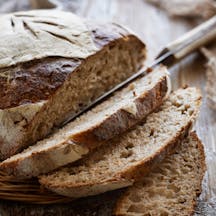
Episode 24·Dec 22, 2024
Discover how the Xbox creator's ancient Egyptian sourdough bread connects to the Temple altar in Rabbi Soloveichik's insightful exploration.
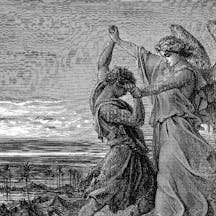
Episode 25·Dec 23, 2024
Explore how taste in mitzvot from the Torah strengthens Jewish identity, highlighting cultural and spiritual connections within the community.

Episode 26·Dec 24, 2024
Explore how our moral sensibilities should reflect the sacred incense of the Temple, guided by Rabbi Soloveichik's insightful teachings.

Episode 27·Dec 25, 2024
The ark of the Great Synagogue of Rome symbolizes Jewish resilience, contrasting with the arch of Titus and its depiction of the Temple menorah.
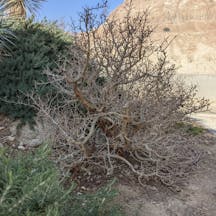
Episode 28·Dec 26, 2024
An ancient plant, once vital for Temple incense, is rediscovered and cultivated anew in the Holy Land, bridging past and present traditions.

Episode 29·Dec 27, 2024
Explore the enduring spiritual duty to guard the Temple, even in its absence, through Rabbi Soloveichik's insightful teachings.

Episode 30·Dec 29, 2024
Robert Frost's poem and two mitzvot illuminate the Jewish perspective on nature, revealing a profound connection between faith and the natural world.
Unlock the most serious Jewish, Zionist, and American thinking.
Subscribe Now